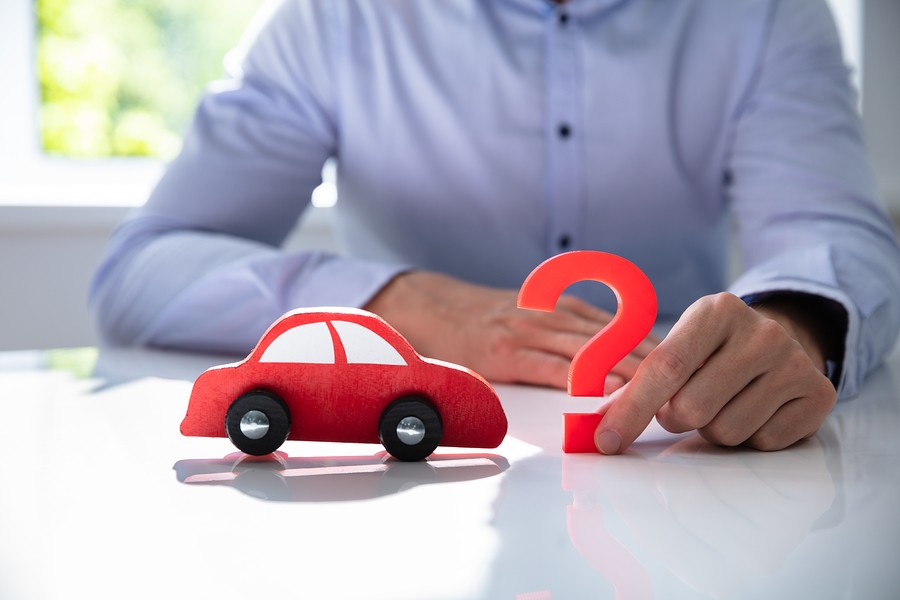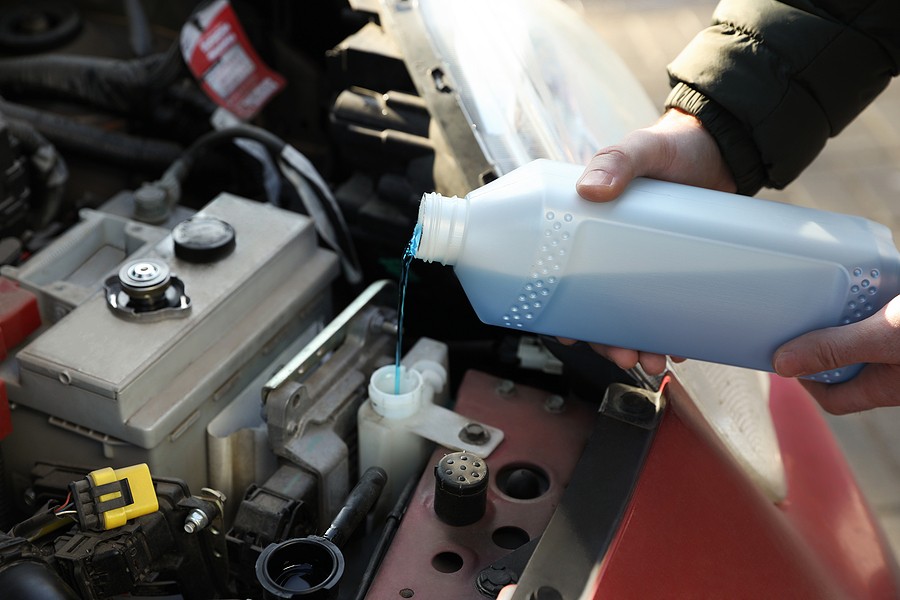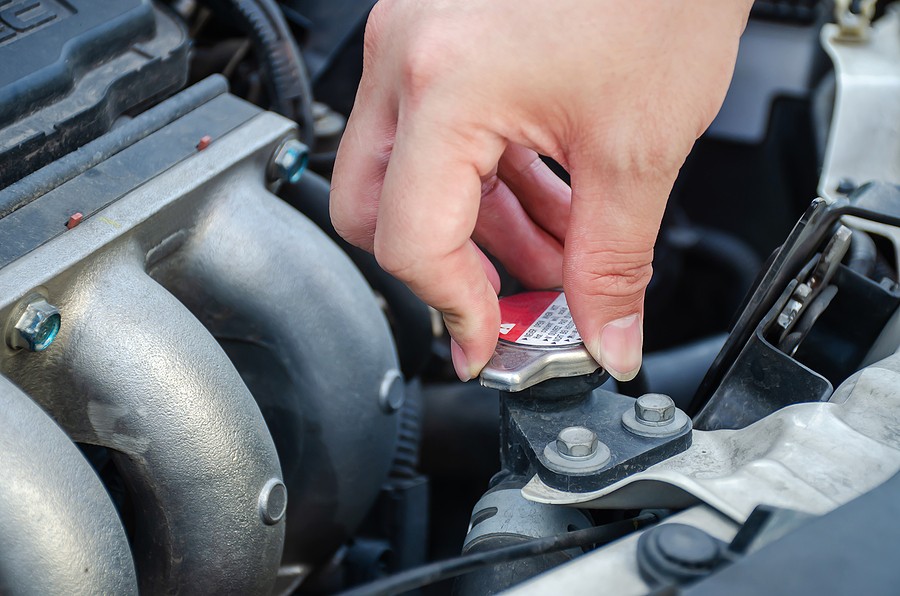This article serves as car coolant 101. It highlights the main role of the coolant in your vehicle, provides you with general information about how to choose the right type of coolant, all that could go wrong when the coolant level drops, and others!
Did you know that although the engine produces massive amounts of heat, it still operates within a certain range of temperature? Thanks to the cooling system and especially the coolant for maintaining the engine temperature and preventing engine damages.
The coolant is a vital fluid that you'll have to maintain all the time to prevent dealing with engine overheating. It is responsible for maintaining the engine separately and lubricating many internal moving components like the water pump, head gasket, cylinders, and others.
Learning one or two things about your vehicle cool helps you understand its main role and prevents dealing with negative consequences that can cost you thousands of dollars on repair. So, let's read on through this car coolant 101!

What does the car coolant do?
One of the first things that we would like to highlight in our car coolant 101 is the main role of the coolant in the cooling system and their vehicle in general.
As we mentioned before, the engine generates a lot of heat, and the engine can't continue working properly if this heat keeps increasing significantly. Thus, the engines are designed to operate properly within a certain temperature range. You don't want your engine to exceed this temperature, and at the same time, you don't want the engine to drop below the minimum temperature level.
The engine temperature will continue increasing unless something stops it. In other words, the engine generates too much heat, and it heats the surrounding components. So, automotive experts designed the cooling system to trigger whenever the engine center exceeds a certain maximum threshold.
When the cooling system is triggered, a coolant fluid runs around the engine, collects all the excess heat, and takes it back to the radiator. Once it gets to the radiator, it takes away the excess heat by running through the radiator vents.
That's why the engine's temperature will drop and stay within the operating range.
What are the common properties of engine coolant?
Another important element we would like to cover in our car coolant 101 is the main properties of the engine coolant. This coolant is not like any regular fluid. Instead, the coolant is a combination of both water and antifreeze. This way, the coolant will not freeze when it gets to very low temperatures, and it will not evaporate as the temperature gets very high.
Let's take a closer look at some of the common properties of your engines:

1. Enhancing freezing and boiling
As we mentioned, this coolant will not freeze during low temperatures with the combination of water and anti-freeze, and it will not evaporate during high temperatures. These properties are extremely important when it comes to maintaining your vehicle.
Imagine what could happen if the coolant doesn't have antifreeze? This fluid will freeze immediately once the temperature is close to zero outside. Thus, the cooling system will not operate during the winter seasons.
Similarly, if you drove the vehicle with only water instead of both water and time freeze, this water will evaporate during hot summer temperatures.
2. Lubricating the water pump
The water pump is a mechanical component, and if it doesn't get lubricated over time, it breaks out prematurely. Therefore, with the coolant running through the water pump, it receives the right lubrication, and you don't have to worry about replacing the water pump more frequently than you should.
3. Inhabiting corrosion
Finally, as coolant runs through the different components in your vehicle, it prevents corrosion from happening, extending the vehicle's lifetime.
How to choose the right coolant for my vehicle?
Although all coolants are a combination of both water and antifreeze, not every coolant is the same. Therefore, you must do some research about choosing the right type of coolant so you don't deal with negative that might impact your vehicle's performance.
Typically, you should start with your vehicle’s owner’s manual. The manual should have exact details about what to use for your cooling system and how much to mix from the different additives.
Although the vehicle's manual will provide some of these details, you can choose a better coolant with additional additives. For example, some coolants with certain additives enhance the way your vehicle performs.

Also, there are some coolants designed for certain seasons. For instance, if you know that you're driving continuously in colder environments, you might want to go with the winter coolant and use it in the vehicle. It will provide you with the minimum requirements by your vehicle’s owner’s manual. Still, at the same time, it provides additional characteristics that make your winter season extremely good in terms of engine overheating issues.
In general, whatever coolants you decide to go with, you must understand that you cannot use an anti-freeze directly. There are many premixed coolants out there in the market, but you have to read the details carefully to confirm that you're buying the premix instead of buying the actual anti-freeze if your
However, if you're happy with a certain antifreeze type, you can always mix it with distilling in 50 to 50% proportions. Note that experts do not recommend using the regular type of water when preparing your coolant mix because it might have some nutrients on other elements that impact your cooling system's performance.
Is coolant the same as antifreeze?
As we mentioned before, coolant is not the same as antifreeze. Some people might interchangeably use coolant and antifreeze terms, but they're not the same.
Coolant is a mix of water and antifreeze. Antifreeze is a specific fluid that enhances water's freezing and boiling points, so it cools your engine during extreme temperature ranges.
Again, you should pay attention to what you're purchasing before paying because there is plenty of premixed coolants and anti-freeze sold separately in the market.
How often should I change my vehicle's coolant?
Coolant is not something you have to change frequently like the oil change. While we know that you need to change your vehicle's oil sometimes once every 5000 miles, coolant is not the same, and it's a different story.
In general, coolants need to be replaced once every 30,000 miles. However, we highly encourage you to reach out to your vehicle’s owner’s manual and get accurate guidance about how often to change your vehicle's coolant.
For example, while some vehicles might require changing the coolant once every 30,000 miles, many vehicles might not need a coolant change up to 120,000 miles. Thus, changing the coolant once every 30,000 miles might be too much for you add it might not be worth it.

What happens when the Coolant level drops?
Did you know that when the coolant level drops below a certain point, you can easily deal with significant engine damages?!
Therefore, understanding what could go wrong when the coolant level drops are one of the most elements we need to highlight in our car coolant 101.
Since the coolant is responsible for dropping the engine temperature every time it exceeds a maximum threshold, When the engine school at level drops below a certain level, it will lose its capabilities of dropping the engine temperature. Therefore, you can easily deal with a continuous increase in the engine temperature that damages the entire engine.
Also, end overheating his mother only problem that he'll deal with. Remember that the coolant is also responsible for lubricating other components like the water pump. Thus, you will still deal with the damaged water pump as well, along with the damages in the engine that will face you.
Therefore, no matter what's preventing you from changing or topping off the coolant level, you should put it as the top priority when driving your car. Sometimes the drop in the coolant level might not be natural. In other words, it might be related to a significant crack or leak inside the cooling system. If that's the case, you must consult your mechanic and resolve the issue as soon as possible to prevent very expensive repairs.
Symptoms of low coolant
To prevent dealing with the negative consequences of a drop in the coolant level, you must keep an eye for the common symptoms of a low coolant level. Let's take at some of those that you'll notice:
1. Engine overheating
You'll realize that the engine's temperature is increasing without dropping. In other words, the engine is generating a lot of heat, the coolant is not helping to drop this heat down, and then your dashboard will trigger a high-temperature warning light.
Note that engine overheating might be linked to other problems. Therefore, you cannot immediately say that you need to change the coolant or you're dealing with some leaks unless you confirm that there are no other issues.
2. Engine shut off
In some severe instances, and whenever you were dealing with a severe leak in the cooling system, your engine might shut off suddenly. Unfortunately, it could be related to significant engine damages, but in some instances, and if you're driving some modern cars, the engine has a system to shut off immediately whenever it exceeds a maximum temperature threshold.
3. Damaged engine parts
If you ignore all the early signs of low coolant level, you might get to a point where some of your engine’s components might get damaged. Unfortunately, if you get to this point, you'll be dealing with significantly higher fare costs, if not situations where your vehicle is beyond repair.
What to do when dealing with a low coolant level?
If you confirm that your coolant level is not at the optimum point, you'll have to take immediate action. Let's take a closer look at what you have to do whenever you deal with a low coolant level:
- Pullover and stop your vehicle in a safe place if you're driving. If you're driving on a highway, you might want to take the nearest exit unless you deal with significant symptoms that prevent you from reaching the exit.
- Allow your car to cool down for at least 15 to 20 minutes because everything in the engine compartment will be very hot, and there is a very high chance of getting risks of burns and other undesirable situations.
- Look underneath the vehicle for any symptoms of fluid leaks that could indicate some coolant leaks.
- Consult your mechanic and check with him if you can drive your car to his nearest repair shop. Otherwise, you might want to consult roadside assistance or towing service to till your car to the nearest guard.
- Have your mechanic inspect the vehicle thoroughly and fix the faulty components before driving your car again.

Car coolant 101: Final thoughts
Your vehicle's coolant is extremely important, and you must maintain it at the right level. Not only it's important to maintain the equivalent. Understanding a couple of things about your coolant helps you eliminate negative consequences and challenging situations that impact your vehicle's safety.
This article serves as the car coolant 101. It provided you with general information about the role of coolant in your car, what could go wrong when this coolant drops, and some additional details that help you maintain the cooling system and prevent dealing with expensive repairs.
Of course, choosing the right coolant and maintaining the cooling system are very important. However, if you're dealing with other major problems, focusing on the coolant might not be the best and highest priority for you. Instead, you should focus on resolving these issues and fixing the problems as soon as possible. However, if the problems are beyond repairs, it might be the right time now to sell your car and use its money to buy a better vehicle.
If you're concerned that no one will accept your car if it has major problems, luckily, cash cars buyer is willing to purchase her card no matter what!
Cash Cars Buyer is one of the top-rated car removal companies in the nation that guarantees to pay you the top dollars and provide you with free towing despite your living location around the united states.
Our process is very straightforward and doesn't take more than a couple of days to get your car removed safely and for the most money.
All it takes you is to:
- Describe your car’s type and condition
- Receive our instant free quote
- Accept the quote
- Get your car removed and receive your cash payment on the spot!
To learn more about our process and our teen, you can reach out to us by calling us at (773) 791-4363 or visiting our home page click on the free instant online offer.



